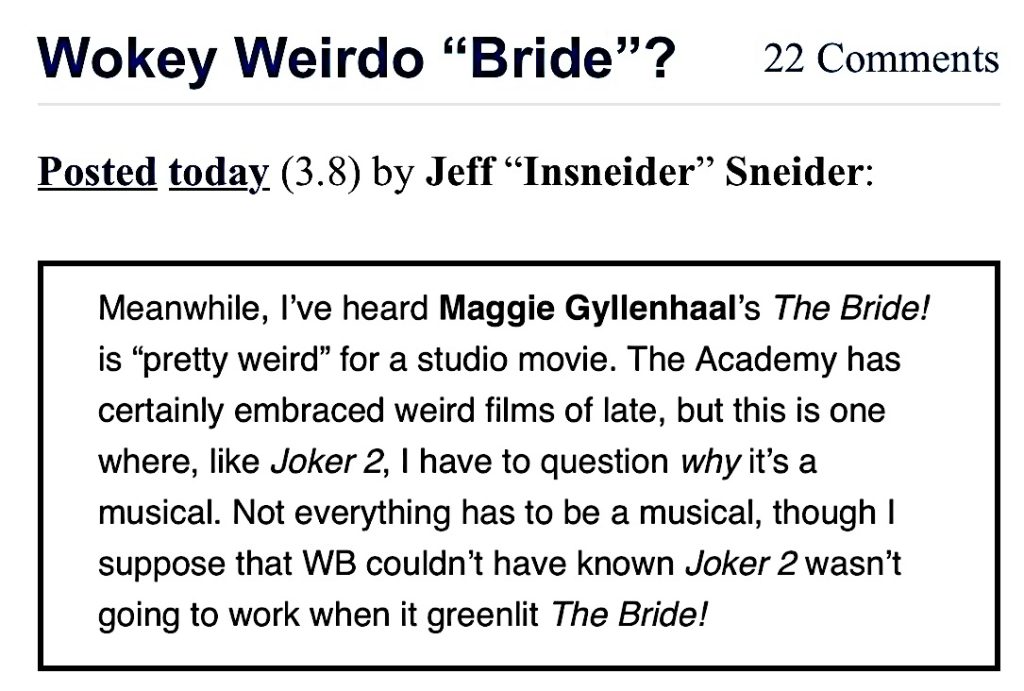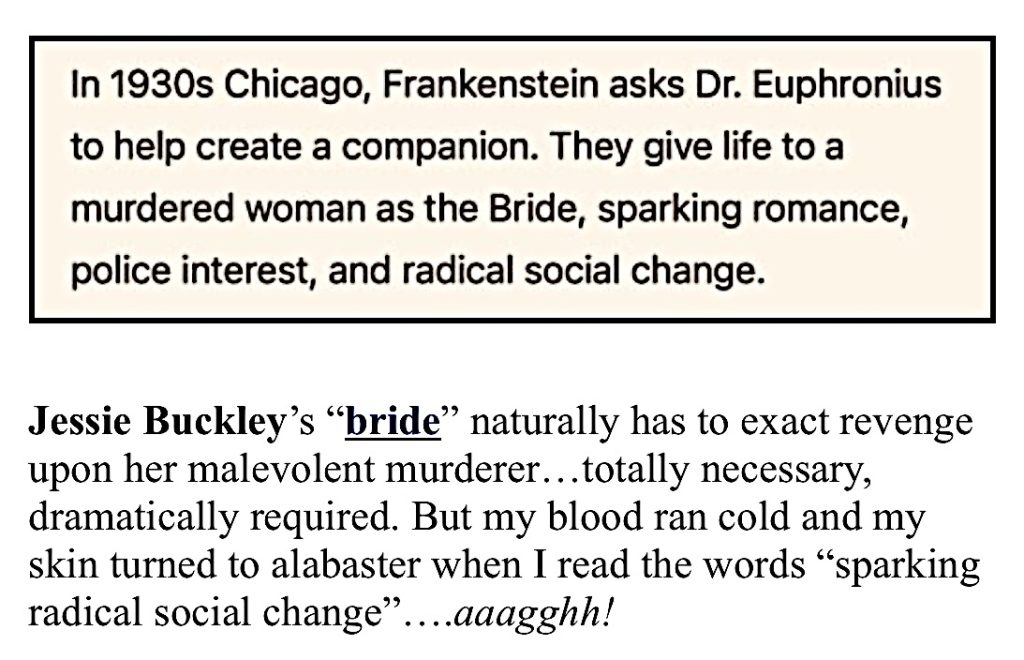This stripped-down performance, posted three months ago by “Deirdre”, was recorded 58 years ago. Paul McCartney‘s sublime bass-playing can be more fully appreciated without his lead vocal track. That’s all I’m saying. Eliminating lead vocals can do wonders for an old song.
Opening Credit Sequences Are Rarely Better Than The Feature Itself
Generally speaking films with excellent, stylistically innovative opening-credits sequences (North by Northwest, Se7en, Dr. No, Raging Bull, Psycho, Dr. Strangelove, Goodfellas, Butch Cassidy and teh Sundance Kid, Fincher’s The Girl With The Dragon Tattoo) tend to be excellent films in their own right. One tends to go with the other.
The opening credits sequence for Martin Scorsese‘s The Color of Money is an exception to the rule — one of the very few times when an opening credit concept is much, much better thqn the film itself.
Scorsese narration: “Nine-ball is rotation pool. The balls are pocketed in numbered order. [But] the only ball that means anything, that wins it, is the 9. Now, the player can shoot eight trick shots in a row, blow the 9, and lose. On the other hand, the player can get the 9 in on the break, if the balls spread right, and win. Which is to say, that luck plays a part in nine-ball. But for some players, luck itself is an art.”
Intriguing if not fascinating…hooked! But if memory serves, luck (artful or otherwise) has virtually nothing to do with the story and characters in The Color of Money. Not a single damn thing.
Why haven’t I re-watched The Color of Money in the nearly 40 years since it opened (10.17.86)? Because it’s not very good, that’s why. Because it’s widely regarded as one of Scorsese’s weakest films.
Yes, Paul Newman‘s performance as a graying, moustachioed Eddie Felson won him a Best Actor Oscar, but all I remember are the fake-outs. Ignoring advice about how to lose, intentionally losing, winning too fast or slow, making bets, losing money, trying too hard…is this what the film’s going to be about? This?
I remember seeing Money at an all-media screening in Westwood, and the crowd couldn’t have been more jazzed at first. But within the first 35 to 45 minutes that energy had all but evaporated.
Citizens of 23 Countries Are Happier Than Americans
Which social conditions and attitudes tend to define general “happiness“, for the most part?
I’ve been all around and the eternals that define happiness the most are (a) high-end classic architecture (especially the centuries-old stuff), (b) access to good music (public concerts), (c) a general feeling of social fairness and stability (aka chill factors), (d) affordable access to elegant clothing, (e) lower obesity levels, (f) first-rate wifi,(g) good movies, (h) plenty of parks, hiking trails and wide-open spaces, (i) reasonable prices, (j) reasons to believe that things are improving somewhat or at least are better than they were in the past, (k) knowing that reptile predators (Venezuelan gang members) are constrained by sensible government moderates, (l) fair opportunities for advancement, (m) vacations.
In short, a general feeling of sanity, fairness and order.
I for one feel tremendously bummed by the astronomical cost of seats at sporting events and concerts, and the absurdity of even thinking about buying tickete to a good Broadwsy play or musical.
Happpiness-wise, the United States of America isn’t exactly a shithole country — it’s ranked 24th in the current World Happiness Report — but I understand, I think, why Americans feel doleful and downish about where things are and seem to be headed.
It’s because people are sensing that the good things (trust, fairness, optimism, hope) are eroding, and because the diametrically opposed MAGAs and wokies are over-dominating and throwing things out of balance. Especially the despised wokies, many of whom have fled into the forest.

And yet two of my all-time favorite countries — France and Italy — are respectively ranked in 27th and 41st place. Never in my darkest dreams could I imagine natives of those countries feeling worse about their culture than Americans do about theirs. This makes no sense. You’re walking around Piazza Navona on a warm summer night and you’re feeling shitty about things?
I’ve strolled around a fair-sized number of the so-called happiest countries — not Finland (the happiest of them all) but Denmark, Iceland, the Netherlands, Costa Rica, Norway, Austria, Switzerland, Belgium, Canada, Slovenia, the Czech Republic, etc. And generally the happiest seem to be the Bernie Sanders social-welfare countries. Societies that are invested in mellow governance and good, first-rate public transportation + dependable cradle-to-grave health care.
Miserable Afghanistan sits at the very bottom of the list (#147). Just behind are four woe-is-us countries — Sierra Leone, Lebanon, Malawi and Zimbabwe.
CNN quote: “The decline in the U.S. in 2024 was at least partly attributable to Americans younger than age 30″ — coddled Zoomers — “feeling worse about their lives. Today’s young people report feeling less supported by friends and family, less free to make life choices and less optimistic about their living standards.”
Miserycinema
The key Ryan Lattanzio term is “priest with an erection.” Forgive me, father, for I would like to be ram-jammed by a servant of God.
I’m sorry, father…really. Please don’t condemn me for falling under that Sam Rockwell.
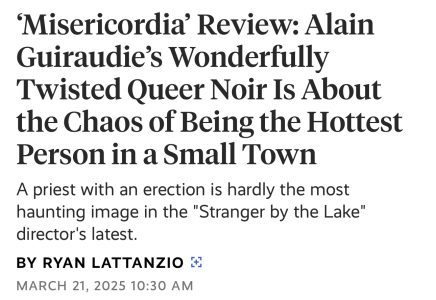
New Beverly double-bill: Hobo With A Shotgun + Priest With An Erection.
No Questions Allowed During “Being Maria” Quad Discussion
Following Thursday evening’s 7:15 pm screening of Jessica Palud’s Being Maria at the Quad, HE was 100% prepared to get into the whole Being Maria vs. Last Tango in Paris vs. Bernardo Bertolucci accuracy dispute.
I was cranked and ready to go into my shpiel about the content of the original Last Tango shooting script and how a sizable portion of the sexual assault scene was on the page, etc.
But the ginger-haired moderator of the Being Maria discussion restricted participation to herself, costar Matt Dillon (who plays Marlon Brando) and producer Marielle Digou. No questions from the schmoes!
After it ended I caught up with the moderator (didn’t catch her name) and asked why questions weren’t permitted. “I don’t know,” she replied, adding “Are you going to blog about this?” I wasn’t sure what she meant but I said, “I already have.”
I later told her about the original shooting draft, etc. She said she’s also read the original Tango script but she was mistaken — she’s actually read a published dialogue transcript of the 1972 film.
I also buttonholed Dillon, who was loose and cool, and asked if he had read the original script and he said nope. I explained about the sexual assault scene, etc. I also told him I thought his Brando performance was first-rate, which it is.
I recorded almost everything. I’ll upload the mp3 when I get around to it. Probably late Friday.
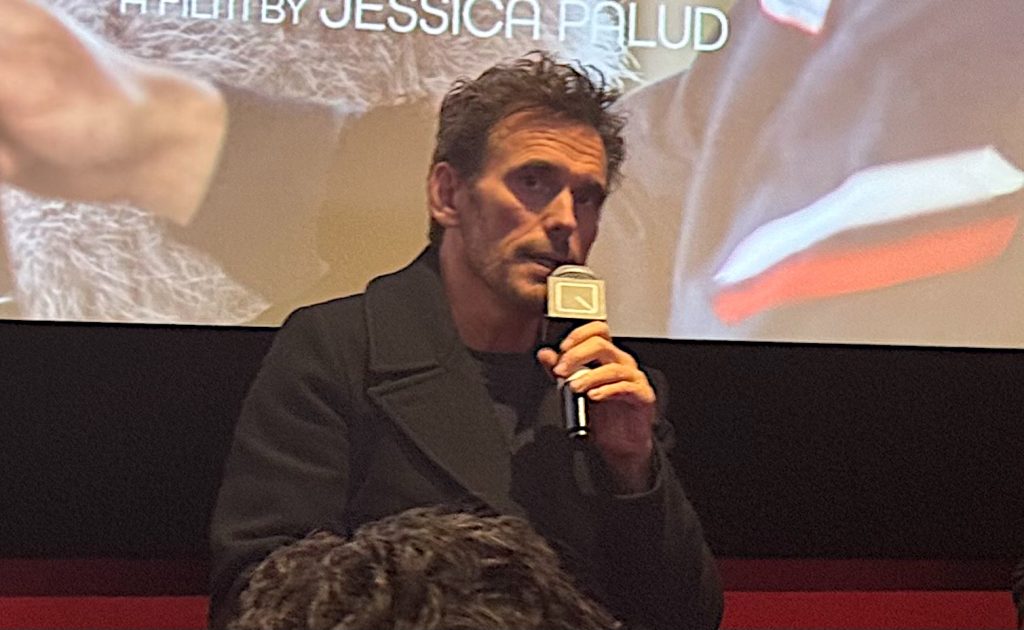
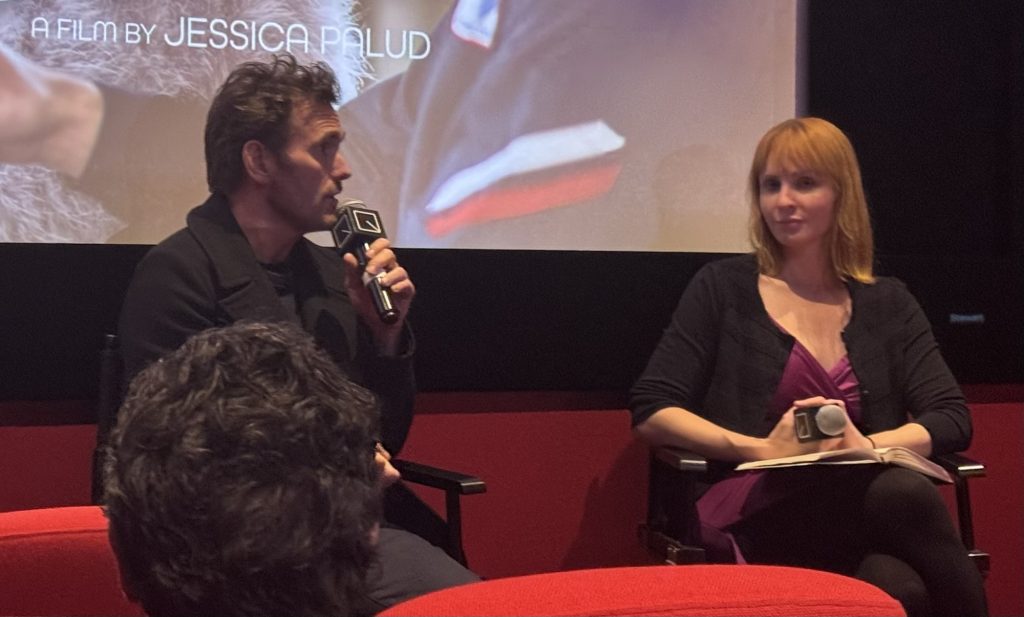
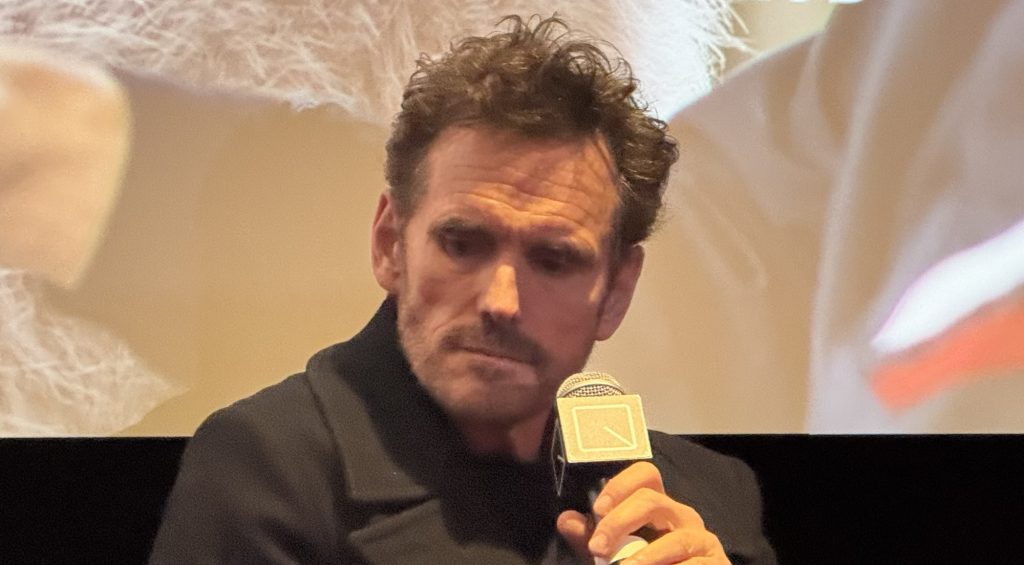
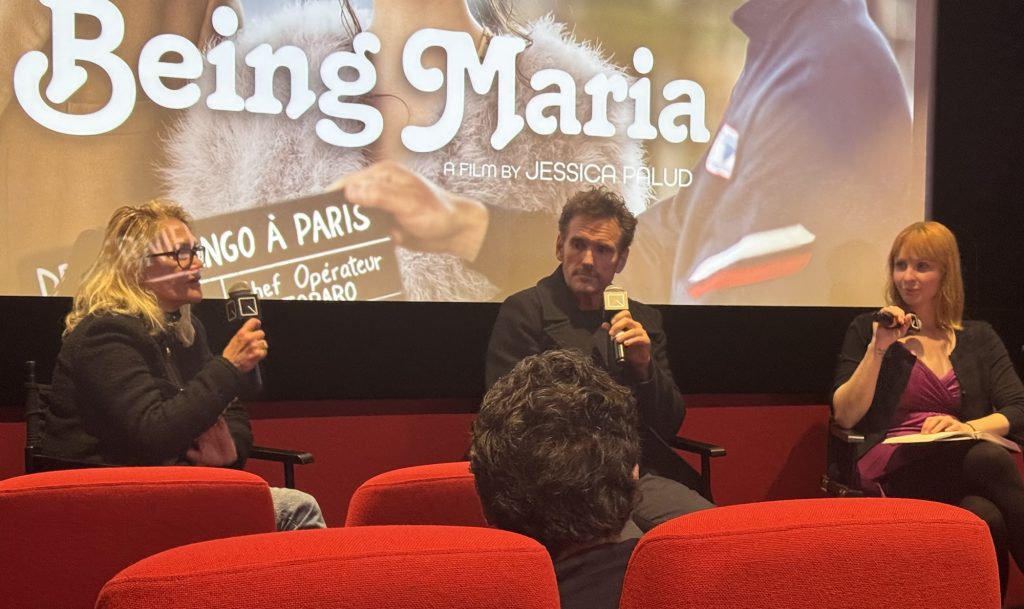
To My Great Surprise
I’ve just seen the newly restored version of Frank Perry‘s Play It As It Lays (’72), and I’m fairly certain I was the only one in the theatre (Film Forum, room #4) who noticed that the film has a 1.66:1 aspect ratio. It’s very clearly masked on the sides to produce that particular rectangular shape — slightly boxier and certainly a bit taller than 1.85.
This is a highly unusual shape for an American-produced feature of that era. Certain European and British films made in the early to mid ’70s (Stanley Kubrick‘s Barry Lyndon, John Schlesinger‘s Sunday Bloody Sunday) were intended to be shown in 1.66, but things were different in the States. Beginning in 1953 the hard and fast rule on this side of the Atlantic was to shoot and project in 1.85. (The obvious exception being films that were shot in Scope or 2.39:1.)
I don’t know precisely when 1.66 was all but totally phased out in this country, but I know it’s quite the rarity these days. 1.66:1 is still HE’s all-time favorite aspect ratio.

Wipe That Smirk Off Your Face, Wings Hauser!
Full respect and a fond farewell for poor Mr. Hauser, who’s left the earth at age 77. I did a phone interview with Hauser when I was writing the Cannon press kit for Tough Guys Don’t Dance back in ’87…good man, witty, kind soul.
“One Battle After Another” Set in Present Day?
That makes a huge difference. I had thought all along that this loose adaptation of Thomas Pynchon‘s Vineland was set in the ’80s, but no….it’s apparently set in the horrific 2020s.
That said, it’s very easy to generate intrigue with automatic rifle fire.
Lemoncello
This newbie contains moments of excellent, crossed-sword disagreement between Mr. Maher and Don Lemon. I’m on a bouncy, lurching Metro North commuter train, but…this is a long one but a good one.
And all the pisshounds who routinely put me down when I post stuff that I haven’t organically generated on my own….all the “This Heavy Doc” and “Clemmy” shitheads who do almost nothing but spew acidic turdballs…they can all take a walk. Truly rotten people…no respect, nothing but disdain.
GoFundMe Joy and Fulfillment
Click here to jump past HE Sink-In
A profoundly emotional thank you to the relatively few supporters who’ve collectively donated $3300 and change (not counting the Venmo deposits) to HE’s 2025 Venice Film Festival Fund. One fine fellow in England dropped in $1200 this morning…amazing! Love, kinship, brotherly comfort. I’m all choked up.
Blessed as my situation obviously is, I’d still like to see if I can generate another $3500 in order to afford the Cannes Film Festival, which is only eight weeks away. If it can’t happen, fine….not the end of the world. But maybe I can get there…who knows?
THREE DAYS AGO: HE’s 2025 GoFundMe pitch, which is primarily about raising enough scratch to attend the 2025 Venice Film Festival, is up and rolling. Going a bit slower than last year’s pitch, but the feeling is real.
I’m just reminding the open-hearted, fair-minded contingent that I’m no longer paywalling this site, and that the content is entirely free and wide open, and this is the only pitch I’m making. $25 or $50….whatever’s affordable. Oh, and if you’d rather keep your donation anonymous, please send it to my Venmo account — @gruver56.
My mind is currently blown and spinning by a $500 donation that came in Tuesday afternoon…wow.
3.18, 7:45 pm update: The total donations have almost reached $2500 (including Venmo). I need another $1K to make the Venice funding goal….gettin’ there, gettin’ there. Thanks to all the generous HE friendos. Love you guys.

With the Telluride Film Festival (which I’ve been attending since 2010) no longer an option, it’s really important to attend Venice. I can’t just be a Manhattan-centric guy. I have to get out there and engage with the world-class sharpies. I’ve visited the city of Venice six or seven times as a regular wanderer, but I’ve never attended the Venice Film Festival before.
Should enough dough rolls in I could use to it to also attend the ’25 Cannes Film Festival, which is only eight weeks off. But I don’t think this will happen. If I can only raise enough for Venice, so be it and thanks from the bottom of my heart.

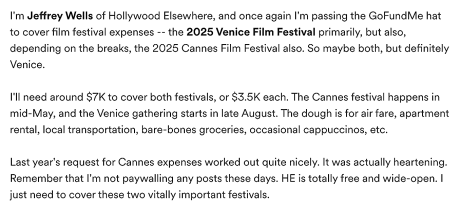

“This Is Heavy Doc” Is Finished
I’ve had it with “This Is Heavy Doc.” He’s posted his last slash-and-burn insult comment. I was sick of his Anora hate anyway. I zotzed his ass just now on the site (12:30 am), and for added clarity’s sake I told him he was terminated by direct email. His real name is Chris; also Mudd. Good riddance.
Gyllenhaal’s “Bride” Drop-Kicked Into 3.6.26 Release
Earlier this month Jeff Sneider passed along loose talk about Maggie Gyllenhaal’s The Bride (Warner Bros., 9.26.25), a woke-feminist re-imagining of James Whale’s The Bride of Frankenstein (‘35). And with musical interludes!
Sneider had heard the film is “pretty weird.” He might have added “too weird for the room” — a judgment indicated by WB distribution having given The Bride a new release date — 3.6.26.
